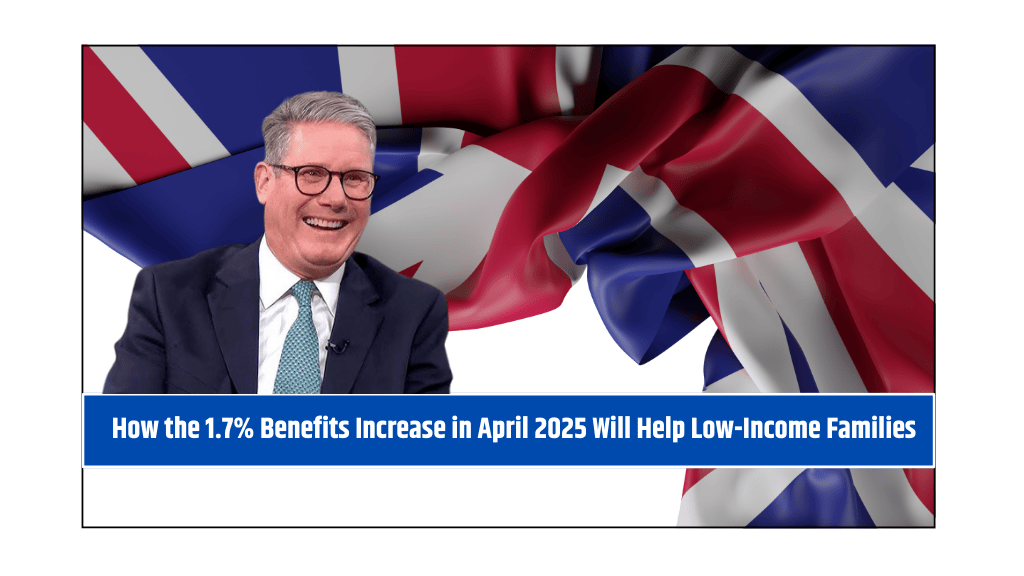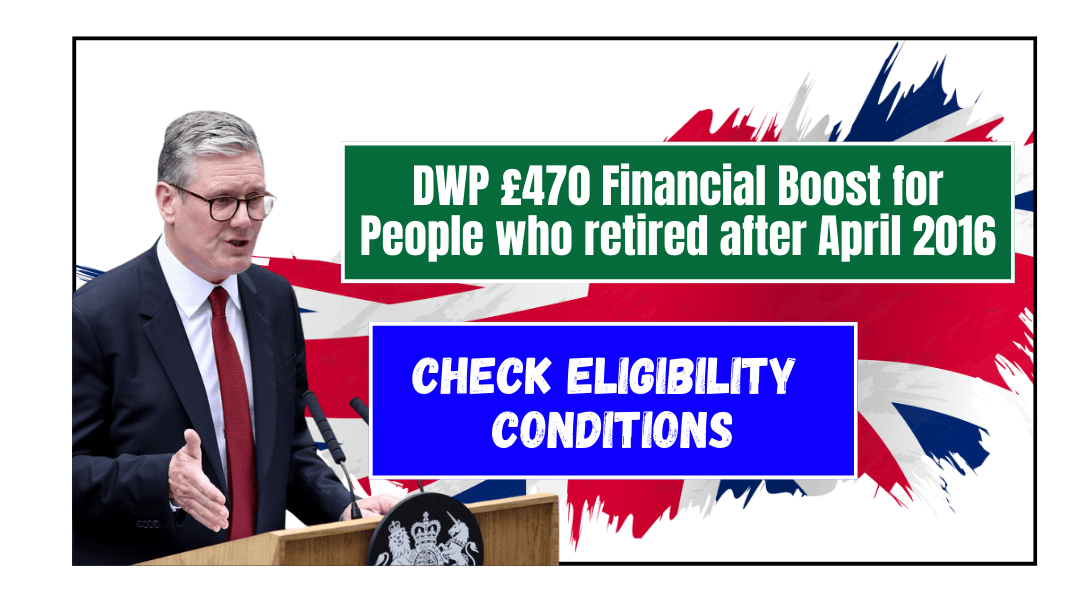Millions of people in the UK will see a small but important boost in their benefits payments starting this April. As part of the government’s annual review, benefit rates are increasing by 1.7% for the 2025/2026 financial year, bringing much-needed relief to low-income families and individuals.
The uplift will begin from April 7, 2025, and covers a range of support payments such as Universal Credit, PIP (Personal Independence Payment), Employment and Support Allowance, and more. The State Pension is also rising by a higher rate of 4.1% under the triple lock system.
Which Benefits Are Increasing?
Here’s a look at the most common benefits getting a 1.7% increase from April 7:
- Universal Credit
- Personal Independence Payment (PIP)
- Employment and Support Allowance (ESA)
- Carer’s Allowance
- Income Support
- Housing Benefit
- Jobseeker’s Allowance (JSA)
Example:
For Universal Credit single claimants aged 25 or over, payments will increase from £393.45 to £400.14 per month.
What About the State Pension?
Thanks to the triple lock rule, the State Pension will increase by 4.1%:
- From £221.20 per week
- To £230.25 per week
- This means pensioners will receive an extra £9.05 per week, or about £470 more per year.
When Will the New Rates Start?
The new benefit rates come into effect as follows:
- Official start: April 6, 2025 (start of the tax year)
- Most benefits: Payments increase from April 7, 2025
- Some Universal Credit claimants may not see the increase until June
- This is because it depends on when your next assessment period begins
- If your assessment period starts after April 7, that’s when the new rate applies
- No action is needed—your new payments will be automatically updated by the DWP.
Why Are Benefits Increasing?
These yearly increases are meant to match inflation, helping families cope with the rising cost of living. April 2025 also brings increases in household bills like energy, council tax, and water—so the benefits rise will help offset some of those added costs.
However, the government’s recent plans to reform disability benefits like PIP in future years have caused concern among advocacy groups.
What Experts Say
Support charity Turn2Us said:
“If you receive benefits like Universal Credit, PIP, Carer’s Allowance, or Housing Benefit, your payments will go up by 1.7% in April 2025. You don’t need to do anything—adjustments are automatic.”
They also confirmed that the State Pension will rise by 4.1% this year.
From April 7, 2025, millions of UK benefit claimants will get a 1.7% increase in their payments, helping households better manage rising living costs. Whether you receive Universal Credit, PIP, ESA, or other support, your payments will go up automatically—no need to apply or call.
If you’re not sure how much more you’ll receive, check your online benefits account or wait for your updated award letter from the Department for Work and Pensions (DWP).
FAQ’s
When will benefit payments increase in 2025?
The new benefit rates will start from April 7, 2025. Some Universal Credit claimants may see changes in June depending on their assessment period.
How much is the increase in Universal Credit for 2025?
Universal Credit payments for single claimants aged 25+ will rise from £393.45 to £400.14 per month—a 1.7% increase.
Which benefits are included in the April 2025 increase?
Universal Credit, PIP, ESA, Carer’s Allowance, Housing Benefit, JSA, and Income Support will all increase by 1.7%.
How much is the State Pension rising in 2025?
The full State Pension will rise by 4.1%, from £221.20 to £230.25 per week.
Do I need to apply for the increased payment?
No. The increase is automatic. You don’t need to do anything. Payments will adjust based on your benefit type and payment cycle.






